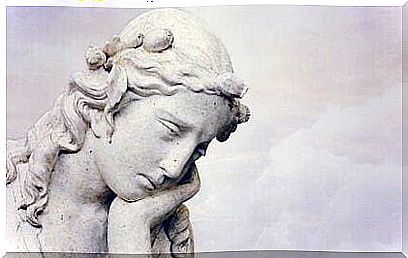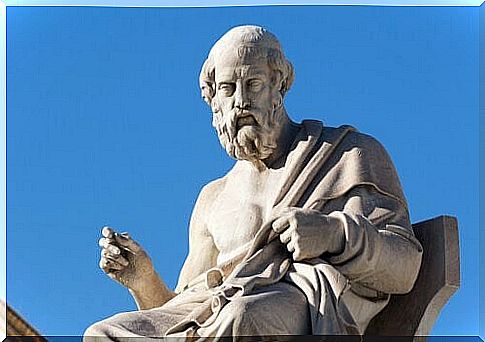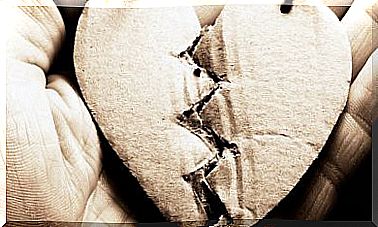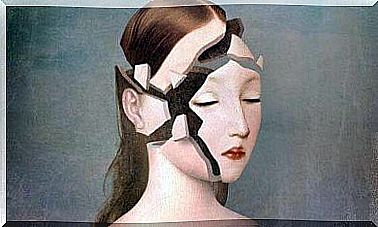The Ancient Greek Cure For Depression And Anxiety

The Greek cure for depression and anxiety is based on an interesting holistic approach. This was a way of life known as bios pythagorikos , based on which people were taught to take care of their diet, their physical fitness and, above all, the intellectual aspect. Taking care of the body and cultivating the mind were, for our fathers of wisdom, key elements in promoting well-being.
It’s possible that these elements seem a bit basic these days. However, we have reached a point in our society where perhaps what we need most is to return to these basics. Thus, we will be able to reduce the complexity of our daily lives, save worries, reduce stimuli and pay attention to priorities.
Philosophy is always an interesting haven to return to from time to time to learn, reflect, and awaken. In a world where technology collapses each of our personal universes, it’s interesting to remember the purpose of this discipline. Figures such as Plato, Aristotle or Pythagoras did not only speak of moral, ethical or aesthetic concepts.
They also taught us the art of “good living”. And most importantly, if possible, the ultimate goal of philosophy has always been to teach us to think better, something essential that, ultimately, also allows us to invest in well-being.

The Greek cure for depression and anxiety: what does it consist of?
Nicholas Kardaras is a clinical psychologist known for his work in different areas: mental health, addictions and the impact of technology today. One of his most successful publications was How Plato and Pythagoras Can Save Your Life. In this work, presented at a conference of the American Psychological Association (APA), he defended the following ideas:
- Today, depression and anxiety are two of the biggest health challenges. What’s more, WHO estimates that by 2030 both will be the main health problem.
- Thus, recent studies, such as one carried out at King’s College , London, (considered the largest study on depression and anxiety) indicate, for example, that between 30 and 40% of the risk of depression and anxiety is genetic, and between 60 and 70% is due to environmental factors.
- This last percentage depends, therefore, on us and on the social measures we have.
- Dr. Nicholas Kardaras indicates something interesting. The origin of these psychological disorders is not just in our industrialized and urbanized lifestyle. We are also losing our existential priorities, our purposes… We seek happiness in products with planned obsolescence.

Works like the one carried out by Dr. Stephen Ilardi, a psychologist at the University of Kansas, reveal something very interesting. Villages such as Kaluli, in Papua New Guinea, have a zero or non-existent rate of depression. They apply in their daily lives a very basic philosophy of life that allows them to gain in well-being.
We have at our fingertips the ancient Greek cure for depression. The one that Pythagoras announced in his time and which is known as “Bios Pythagorikos”. Let’s see what it consists of.
Diet rich in omega 3
Omega 3 fatty acids are those present in foods such as walnuts, olive oil, salmon, chia seeds, among others. Interestingly, many current studies reveal how these types of fatty acids act as true neuroprotectors.
regular exercise
The academy in Ancient Greece was an institution dedicated to physical and spiritual instruction. One scope was therefore related to the other. Nowadays, we often neglect the importance of exercising our body, keeping it active, enjoying that vitality in which we can connect with the environment around us, with nature and with ourselves.
Living in harmony with sunlight
This is another essential point within the Greek cure for depression. If we think about it, we are losing that link. We live surrounded by artificial light emitted by our workplaces and electronic devices. This kind of light directly affects our rest and, by extension, our health.
We must, therefore, sunbathe and pay attention to our schedules so as not to lose this connection with the cycles of nature.

Perform tasks that avoid negative thoughts
The Greeks were wise in the matter of delight and relaxation, as well as cultivating fabulous pleasures with which to combat worries. It is not necessary to follow hedonism, but we must allow ourselves to enjoy moments when we are in touch with our passions, feeling free, happy, creative, etc.
dialectical discussions
Dialectics is the art of confronting, listening, debating, relativizing, learning, renewing ideas, discovering purposes, etc. It implies, above all, having enriching social contacts that contribute with new perspectives, that challenge us with their energy, vitality and optimism.
These pillars of the Greek cure for depression couldn’t be simpler. More than a first aid kit, it is an invitation to create new lifestyles: to create a project in which we are the protagonists to seek and work on our well-being. Let’s think about it.









